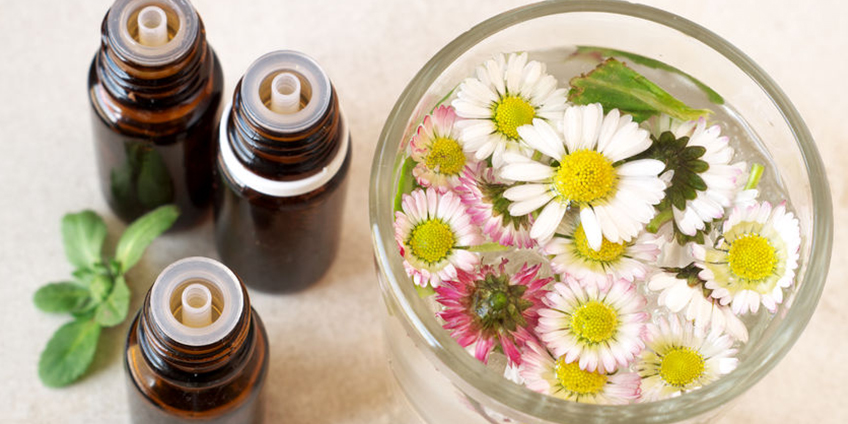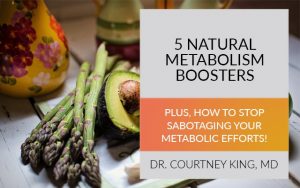We typically think of using essential oils for their fragrance, but plant essences have been used as medicine for thousands of years.
In this article, we are going to discuss essential oils and gut health, specifically. I’ll discuss how they can be used to improve digestion, build your immune system, and in some cases replace antibiotics. I have also listed my favorite essential oils for gut health.
Quick Answer: Best Essential Oils for Gut
- Peppermint
- Lavender
- Clove
- Oregano
- Thyme
- Keep reading for more…!
Why does gut health matter?
The gastrointestinal system plays a central role in immune system homeostasis. It is the main route of contact with the external environment and is overloaded every day with external stimuli, sometimes dangerous as pathogens or toxic substances, in other cases very useful as food or commensal flora. (Source)
Your gut makes up 70% of your entire immune system. If your gut is compromised, so is your first line of defense from harmful substances, toxins, undigested foods, etc.
Your gut is mostly comprised of foreign microbes that have a symbiotic relationship with our cells. The NIH Human Microbiome Project has proven that the human body contains trillions of microorganisms, outnumbering human cells 10 to 1!
We’ve been generally taught that bacteria are bad, cleansing and sanitizing our entire environment and popping antibiotics like candy, yet now we know an imbalanced microbiome can lead to intestinal damage, illness, depression, and emotional stress.
Where is the main hub of these microbes? You guessed it: in your gut!
Essential oils can be used as anti-bacterial, anti-fungal, and anti-viral medicines without killing all of our beneficial bacteria the way that antibiotics do.
There is certainly a time and a place for antibacterial effects, and even antibiotics. Antibiotics save lives, no doubt, but the concern is an entire industry built around killing all bacteria – good and bad. Antibiotics are too commonly prescribed for viruses, or mild bacterial illnesses that can be treated in other ways.
Below, I have covered my favorite essential oils for gut health to help you maintain a healthy flora!
Disclaimer: If you are having health problems, you should consult your healthcare professional. This article outlines historical uses of essential oils for digestive issues, and shouldn’t be considered medical advice.
Essential Oils for Gut Health
Before we discuss the best essential oils for gut health, it’s important to distinguish between essential oils and fragrance oils. Modern fragrance oils are synthetic oils based on petrochemicals and do not share the therapeutic qualities of natural high-grade essential oils.
Most commercial fragrances contain toxic ingredients under the term, “fragrance” or “parfum,” which can be used on labels without disclosing any of the actual ingredients.
They are essentially cheap copies of the real thing that often contain toxicities and do not have to pass any safety or health tests. More on this later (or on any of my blogs about Detoxing and using clean beauty products!)
Essential oils, on the other hand, can have many health benefits because they are concentrated forms of plants. Plants are medicine.
Note, you should also be wary of how essential oil companies source their oils, especially since you are using oils in a concentrated form. Look for organic products!!
1. Peppermint Essential Oil
One of the most popular oils for improving digestion is peppermint. It relaxes the smooth muscles of your intestines and has long been used to help relieve gas pressure. It also helps to calm down reflux.
Instead of popping an antacid when you have heartburn, you might want to try a drop or two of peppermint oil in a bit of warm water, and drink it down.
Or, if you’d rather not ingest it, add a couple of drops of peppermint essential oil to a teaspoon of olive or coconut oil and rub it on your abdomen in a slow and gentle clockwise motion. This is great for kids’ tummy upsets.
Since it relaxes those digesting muscles, many people find that peppermint tones down IBS (irritable bowel syndrome), a frustrating combination of constipation and diarrhea. (Also helpful for IBS are cumin, coriander, and lemon balm oils.)
Overall, peppermint has a balancing effect on your bowel flora, the bacteria, and other microbes that coexist with you inside your intestinal tract. And that’s a community you’ll want to keep happy, as it’s very necessary for your good health.
2. Clove Essential Oil
Like peppermint, clove oil relaxes the intestinal smooth muscle. It also calms inflammation in the gut lining and reduces intestinal spasms.
It has often been used to relieve nausea, bloating, and diarrhea. Clove has antiviral and anti-fungal properties and can be used to eliminate Candida yeast overgrowth and parasite eggs.
If you just need a little help getting things started, cardamom, ginger, and tarragon essential oils all stimulate the production of the gastric juices.
Appropriate amounts of stomach acids and bile can discourage reflux while balancing peristaltic action (motility). Clove EO is really helpful if you have a tendency toward constipation.
3. Lemon Essential Oil
Got morning sickness? Instead of eating saltine crackers and ginger ale to quell nausea, try taking a whiff of lemon essential oil. It can stop nausea in its tracts, and it has way less carbs 😉
This is also a great oil to use in cooking, as are the two mentioned above. A dab’ll do you in recipes. Remember, good essential oils are a VERY concentrated form of the plant. You can always add more!
4. Tea Tree Oil
Tea tree oil (or Melaleuca) is commonly used as a topical antiseptic. It is preferable to dilute this strong oil, but it can also be used full strength on cuts and scrapes. It can also be applied to the skin behind the ear (not inside the ear canal) if you suspect an ear infection.
In gut health, it can be used if you suspect a GI infection – You can bring relief to nausea and vomiting with Tea Tree oil, but if you ingest it, you really need to dilute it! Alternatively, you can soak a piece of cloth in a mix of tea tree EO diluted into any carrier oil, and place over your belly.
Another use for tea tree oil is for foot and nail fungus! You can soak your feet in a diluted mix of water and tea tree oil, or, if you can handle it, you can apply the oil straight to the problem nails.
Use Tea Tree Oil in conjunction with oregano essential oil instead of harsher, synthetic or toxic antibacterials.
5. Lavender Essential Oil
Lavender essential oil is probably the most popular scent used in aromatherapy, known for its ability to relax the mind and soul. It is also a great antiseptic. Good for cuts, scrapes, and burns, it can be used alone, but is often combined with tea tree oil or aloe vera gel.
Just as Lavender can calm down an agitated toddler when diffused in a room, or get you ready for a massage, it can also calm down your gut symptoms. This one also needs to be diluted in order to take internally, or can be applied over the belly in a EO oil pack (on a piece of cloth).
6. Thyme and Rose
While each of these oils have superpowers of their own, these two in combination can be a powerful combination for food poisoning.
If you take it at the first sign of eating something that seems “off”, or at the first bout of distress, the combination of these EOs has been known to help ward off symptoms, decrease symptom severity, and shorten the time it takes to get back to normal life.
7. Oregano Oil
This phenomenal oil is one of the most potent anti-microbial, anti-fungal and anti-parasitic oils you can use. It should be treated as such, for a little goes a long way. This is a very potent and very powerful oil. It can be part of a SIBO (Small Intestinal Bacterial Overgrowth) treatment protocol, and it can even kill good gut bacteria that is in the wrong location.
- Anti-“everything” (fungal, microbial, parasitic, viral)
- Anti-histamine
- Anti-spasmodic
- Clears mucous
- Relieves Cramps
- Prevents Free Radical Damage to Cells (ie. thymol)
- Insect Repellent
- Stomach Upset
What’s wrong with fragrances?
While most other products state their ingredients on the back label, fragrance ingredients are protected under the U.S. Fair Packaging and Label Act because they are considered “trade secrets.”
That means any given commercial “fragrance” might be comprised of hundreds of different unknown, unverified ingredients.
And guess what? 75% of the time commercial products that used the term “fragrance” contain legally hidden phthalates, parabens, and other known, toxic chemicals. “Trade Secrets” can be straight poison!! Ever wonder why so many people are sensitive to fragrances or perfume?? Now you know.
Numerous studies are emerging about the thousands of potentially harmful chemicals that are circulating through our environment and daily lives. They are often the pervasive and hard-to-pronounce words we see on the back of labels of our food and personal care products, fragrances being one of them.
So stay away from “fragrances” and opt for essential oils instead!
If you want to lean how to assure you are using safe and clean beauty products, or what to do if you haven’t been win the past, Join us in my Golden Road 365 Detox program which I lead twice a year!






0 Comments